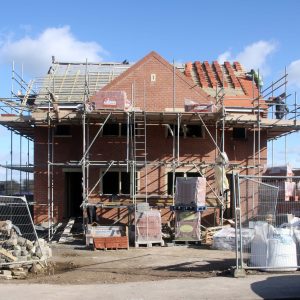
That was how he had the idea for RenKap, a start-up business that will help increase the delivery of high-quality homes for those currently locked out of the housing market and which was recently accepted on to the government’s Geovation Accelerator Programme.
“I’ve always been interested in housing and used to work at Arcadis, a big design and consultancy firm for built and natural assets that insured big housing associations, London authorities and private sector clients,” Marquesini tells Mortgage Solutions.
“And yet, even while I was earning good money in London, there was still no chance I’d be able to buy a home. So my girlfriend and I lived aboard a houseboat on a canal for three years while we saved.
“It was was good fun at times and challenging at others. Eventually, we bought a flat through shared ownership.”
However, he notes that not everyone can do what they did and that was one of the key drivers for setting up RenKap.
“I thought: ‘I understand how the sector works and I know we’re not building enough in this country,” he says.
“My two co-founders and I decided to see if we could come up with an alternative business model and help to address the problems facing so many would-be first time buyers.”
Online platform
The trio designed an online platform where housing associations and local authorities can upload their unused small sites for assessment, review, procurement and, ultimately, deliver high-quality homes.
They established links with several industry advisers, who were impressed by the RenKap business model, and who are “well known in the housing sector and very helpful about opening doors.”
Marquesini says: “The easiest comparison to RenKap, for the way it introduces parties, would be Airbnb.
“We’re going to public sector organisations, housing associations and local authorities, and saying to them: ‘We’re aware you have high delivery targets for your larger sites, so why not upload your smaller sites onto our platform, with the red line boundary and all the information you can provide.’
Five stages
Once uploaded the sites go through RenKap’s five stages of filtering.
“The first stage is due diligence through our supplier chain, who have each done a pre-qualification questionnaire to get in.
“We let them know about the sites and they go and have a look at them – it might be surveyors checking for asbestos, say.
“They do their work and respond through the dashboard, the dashboard collects all the responses, and that gives our client their reports, for which they pay.”
The successful sites go through to the feasibility stage, followed by the pre-contract stage which is where the housing scheme is designed to a standard ready for the planning stage, where specialist consultants come on board.
“Once they get planning permission it moves to the construction stage,” says Marquesini. “We say to builders: ‘Here are the sites, are you interested in building them?’”
The RenKap dashboard could be particularly helpful for development managers, Marquesini explains: “A client might need to take a development manager off site to work on a bigger project.
“But with the Renkap, they could log in and oversee the development of lots of small sites through our dashboard. That means one development manager can oversee multiple sites through our technology.”
Opportunities for brokers
What does Renkap offer mortgage brokers? “We can get units on to the market quite fast. By scaling delivery on our side, we’re bringing more supply on to the market, which means more opportunities for brokers.”
And if Marquesini had one message for the mortgage industry, what would it be?
“That lenders need to be more supportive of modern methods of construction,” he says.
“They need to take a stand and say that, if everything is place, they will provide a mortgage on the homes we hope to see delivered.
“Builders need that certainty. If lenders are more supportive, we can scale delivery of affordable homes, which means more opportunities for first-time buyers, and more business for brokers and lenders.”
















